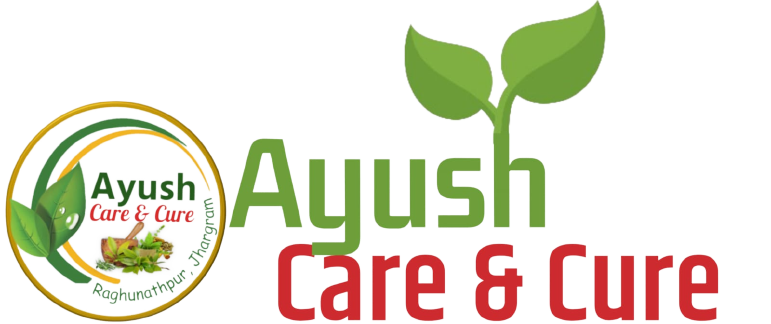Premature Ejaculation (PME) in Ayurveda
Premature Ejaculation (PE) is recognized in Ayurveda primarily as Shukragata Vata, a distinct pathological entity correlated with ejaculatory impairment or abnormalities in seminal properties. It is also discussed broadly within the domain of Klaibya (impotence or male sexual dysfunction).
The classical features of Shukragata Vata that correspond to PE include Kshipram munchati Shukram (early ejaculation), Shukrasya Sheeghram utsargam (fast ejaculation), and Atiseeghra Pravritti (premature ejaculation). PE is generally defined as ejaculation occurring prior to or within a very short duration of sexual activity, often within 1-2 minutes of penetration, characterized by an inability to control or delay ejaculation.
Etiopathogenesis in Ayurveda
Premature ejaculation is considered a condition caused fundamentally by the vitiation of Vata Dosha.
- Role of Vata Dosha: Vata Dosha governs movement and is responsible for controlling and stimulating mental activities. When Vata becomes aggravated (vitiated), its increased mobility leads to structural and functional impairment of the sperm, causing excess stimulation and a lack of control over physiological and psychological activities related to sex.
- Dosha Subcomponents: The coordinated activities of Vata subcomponents—Prana, Udana, Vyana, and Apana Vayu—are essential for proper erection, rigidity, and optimally timed ejaculation. Derangement in these activities, particularly the overactivity of the sympathetic nervous system, leads to poor erection and early ejaculation.
- Psychosomatic Origin: PE is frequently identified as a psychosomatic problem. Mental factors play a significant role, as Vata controls the Mana (mind). Anxiety, stress, and fear (Bhaya, Chinta, Shoka) are major triggering factors for PE. A lack of Dhairya (courage/determination) and Preeti (satisfaction) leads to Sheeghra Chyavana (early ejaculation).
- Causative Factors (Nidanas):
- Dietetic: Consuming dry, cold, or inadequate food, or abstinence from eating when hungry.
- Lifestyle: Excessive indulgence in sex (Ativyavaya), sexual intercourse at improper times (Akaala Maithuna), staying awake late (Prajagara), engaging in extreme physical activities, and suppressing natural urges.
- Mental: Mental worries, stress, grief, anger (Krodha), and fear.
Ayurvedic Treatment and Management
The management of PE falls under the branch of Ayurveda known as Vajikarana (sexual medicine or aphrodisiac therapy), which aims to enhance a man’s sexual potency and overall physical, psychological, and social wellness.
Ayurvedic treatment involves a multi-dimensional approach including Shodhana (Detoxification), Shamana (Management by therapies/herbs), Vajikarana (Aphrodisiac treatment), and Sattvavajaya (Counseling).
1. Pharmacological Management (Vajikarana)
Vajikarana herbs and formulations used for PE are generally characterized by four key properties: Vrishya (improving sexual strength), Balya (enhancing body strength), Medhya (psychotropic/mental nourishing), and Shukra Sthambhaka (delaying ejaculation). The Shukra Sthambhaka property specifically decreases mobility and enhances stability, aiding in prolonged retention time.
2. Detoxification and External Therapies
- Panchakarma: Procedures like Basti (Therapeutic enema) are an ideal choice, as Basti treatments effectively control Vata Dosha at its root site. Virechana (Therapeutic Purgation) may be used to clear obstructions in the Shukravaha Srotas (sperm channels).
- External Applications: Medicated oils such as Chandanadi Tailam and Mahasugandhi Tailam are recommended for application all over the body in the early stages of ejaculation. Traditional external measures include applying specialized oil preparations (like Bhoomilata Kalkasiddha Kusumbha Oil or Ajiaksheera and Ushtraksheera mixed with Goghrita) to the soles of the feet and legs during the sexual act, often intended to distract the mind.
3. Counseling and Lifestyle Modifications
Psychological Counseling (Sattvavajaya): Counseling is considered vital, especially since anxiety and stress trigger PE. It helps restore Su-prasanna Mana (pleasantness of mind), imparts confidence, reduces performance anxiety, and helps the person think optimistically, leading to improved sexual performance.
Yoga and Physical Practices: Regular practice of Yoga and meditation helps to calm the mind and nourish the body, supporting sexual health. Specific asanas and mudras recommended for PE include:
- Paschimottanasana: Stretches the back, strengthens pelvic muscles, and promotes control over ejaculation by reducing anxiety.
- Mayurasana (Peacock Pose): Aids digestion and facilitates blood supply to the pelvic organs.
- Dhanurasana (Bow Pose): Releases stress and anxiety.
- Ashwini Mudra (Horse Stance): Tones pelvic floor muscles and builds better blood supply to genital parts, aiding ejaculation control.
Dietary Regimen: Dietary modifications aim to balance Vata Dosha.
- Wholesome Foods: Intake of unctuous and warm foods, including milk boiled with herbs, ghee, honey, rice, wheat, black lentil, red meat, mango, grapes, banana, ginger, asparagus, onion, and garlic. Nutrient-rich foods like nuts and saffron are traditionally known to boost sexual health and may help delay ejaculation.
- Unwholesome Foods (to Avoid): Cold, dry, stale, or Vata-provoking food items such as peas, barley, millets, beans, leafy vegetables, and raw salads.
Behavioral Regimen: Maintaining regulated sexual activity, ensuring rest, mental serenity, and avoiding physical and mental exertion are advised. Prohibiting the suppression of natural urges is also crucial.
